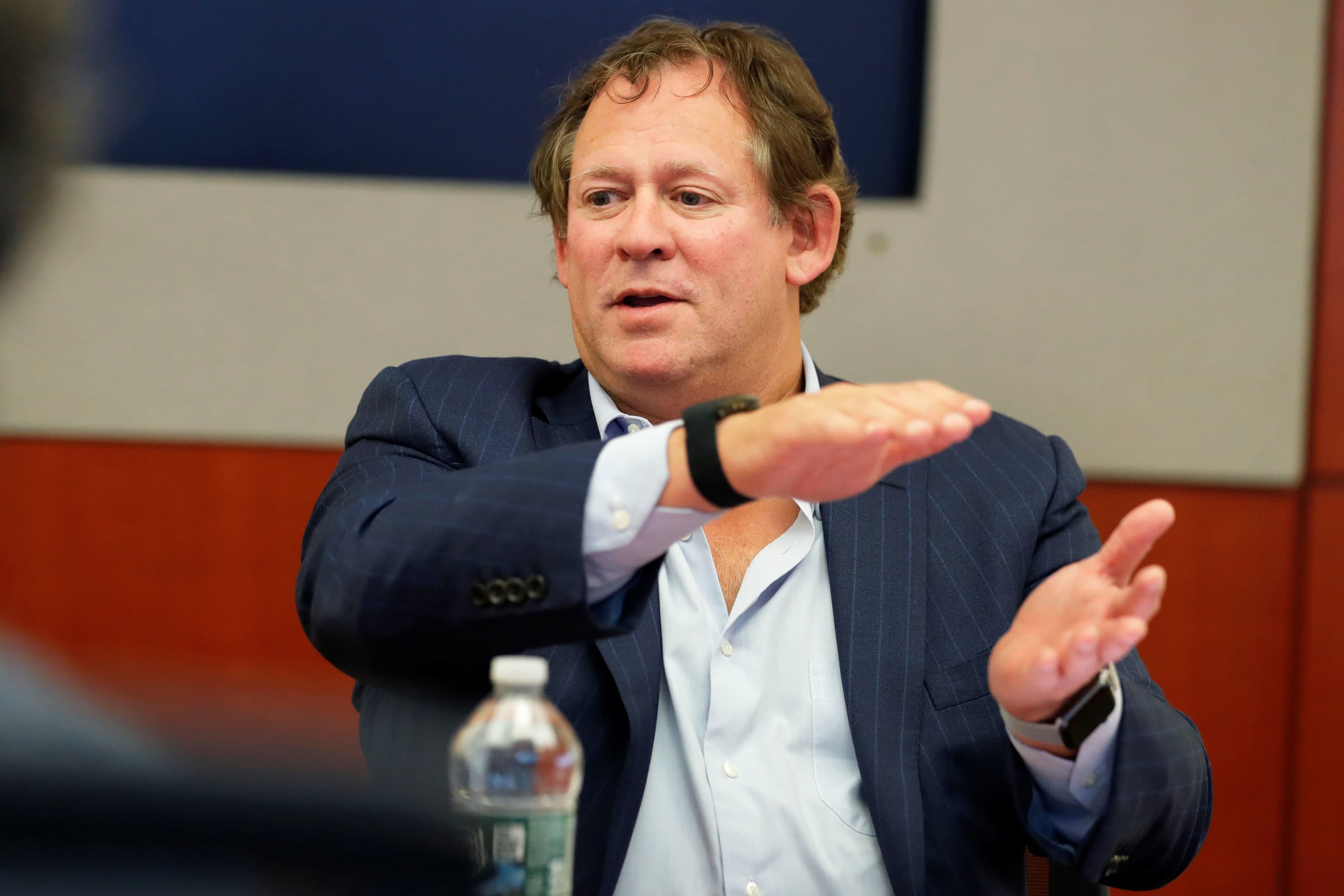Rick Rieder, BlackRock’s Chief Investment Officer of Global Fixed Income, speaks during a Reuters investment summit in New York, November 7, 2019.
Lucas Jackson | Reuters
BlackRock’s Rick Rieder says bond market volatility appears to have peaked and stocks may have hit bottom thanks to a heavy blast of stimulus from the Federal Reserve and a proposed fiscal package expected from Congress.
Stocks rallied for a second day Wednesday as the $2 trillion stimulus package continued to make its way through Congress. The S&P 500 was up 1.15% to 2,475 on top of Tuesday’s more than 9% gain. The S&P 500 hit a low of 2,193 Monday.
“I don’t think we go back down under 2,300 again,” said Rieder, global chief investment officer of fixed income.
Nine days ago, Rieder told CNBC he was buying select stocks in the health care, technology and construction sectors, but that the market had not yet bottomed at that point.
Rieder said he does expect the market to continue to be under pressure and can’t be certain the bottom has been hit, but sees stocks as cheap.
“I’m pretty certain we’ve seen the highs in volatility in rates,” he said. However, he said equity volatility will remain high and he’s not sure it has peaked. “I am much more confident that we won’t see Treasury volatility like we saw last week. Equity volatility is still extraordinary.”
“I’d say we’re not 180 degrees better by any sense. Maybe we’re 90 degrees better because we have the fiscal stimulus and the monetary stimulus,” he said. “We need to see employment and the economy and the virus stabilize to get to 180 degrees.”
Rieder said it’s difficult to see how the situation could be improved much before another three weeks or more.
Improvements in testing would help since it would ultimately be a factor that could allow people to return to work once the virus slowed
Rieder said he will be watching Thursday’s weekly jobless claims report, at 8:30 a.m. ET, since it will be the first data on how hard the labor market has been hit by the pandemic.
Treasury yields were higher Wednesday, and the 10-year was at 0.869%. “I think the 10-year could back up to 1%, but I don’t think we’re moving significantly higher than that any time soon. My sense is we’re going to be at 60 basis points on the low, for awhile unless we see an exogenous shock,” said Rieder.
Market pros have been divided over whether stocks have bottomed though there are some technical signs it may have. Some strategists, however say there could be another low ahead as coronavirus cases worsen and the economy shows signs of stress.
Rieder said credit markets have also improved since the Fed cut rates to zero, added tremendous amounts of liquidity and said it would buy unlimited Treasurys. It also added commercial paper, municipal bonds and investment grade corporate bonds to the list of markets it would directly target.
Congress was considering a $2 trillion stimulus package, but it hit what some expect to be a temporary snag Wednesday evening.
“The Fed has been effective at targeting the areas that are under stress,” said Rieder. “The area that was most broke was the break even inflation market. That was just signaling we were going into a depression. Once they came in, the market has stabilized.”
Rieder said in the past week market functioning has improved, from a situation where investors were just looking for cash and liquidating assets. He said lower rated products, such as high yield corporate bonds remain under pressure, and commercial paper continues to have problems.
“It will be interesting to see if that stabilizes as well,” he said. But investment grade corporates are seeing buyers, even for new issues, which have surged in the past two weeks.
Unlimited assistance from the Fed works and it eases volatility, he said. “When they were doing $60 billion a month, that was immense,” he said. “I don’t have an adjective for $70 billion a day.”
